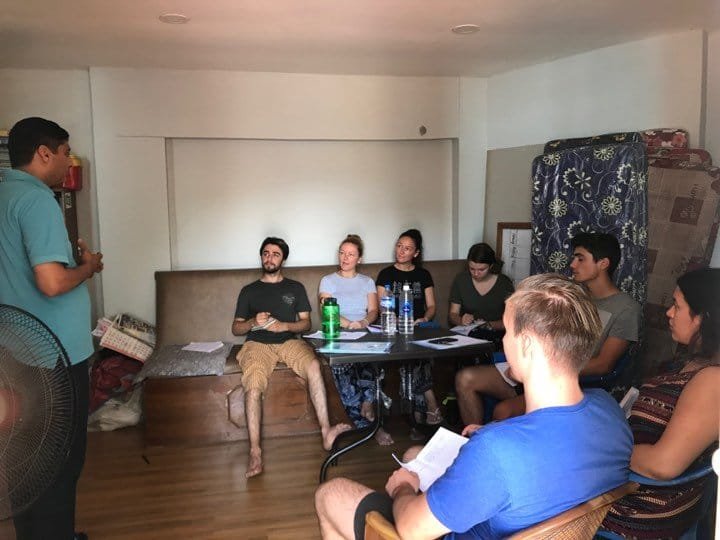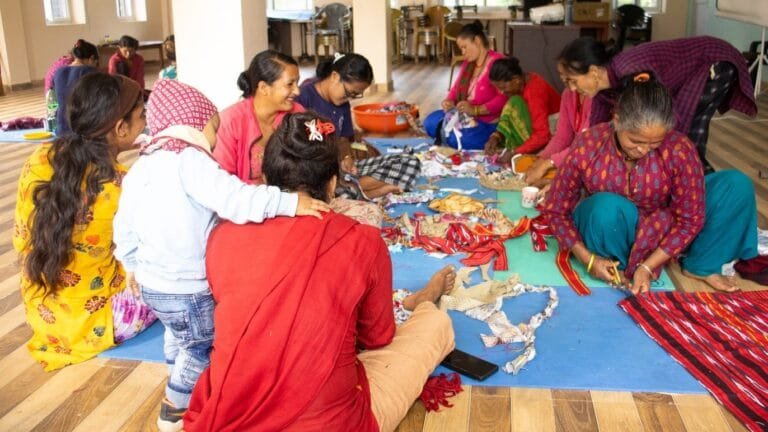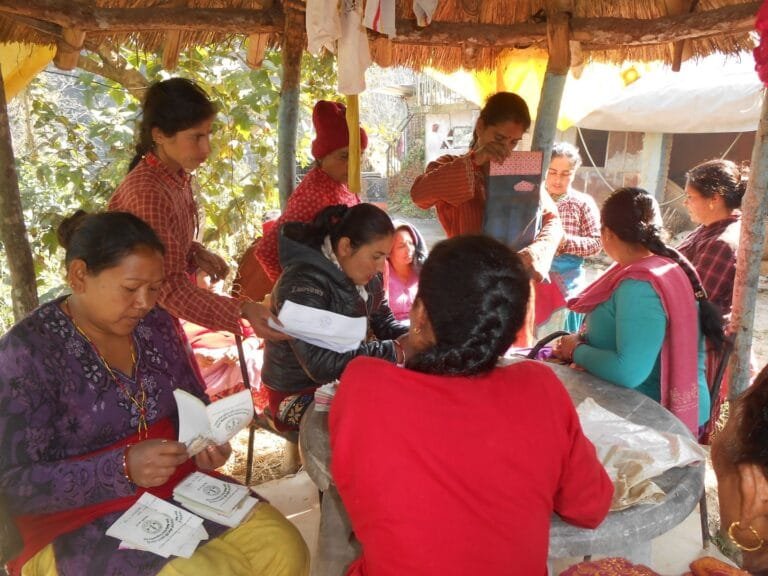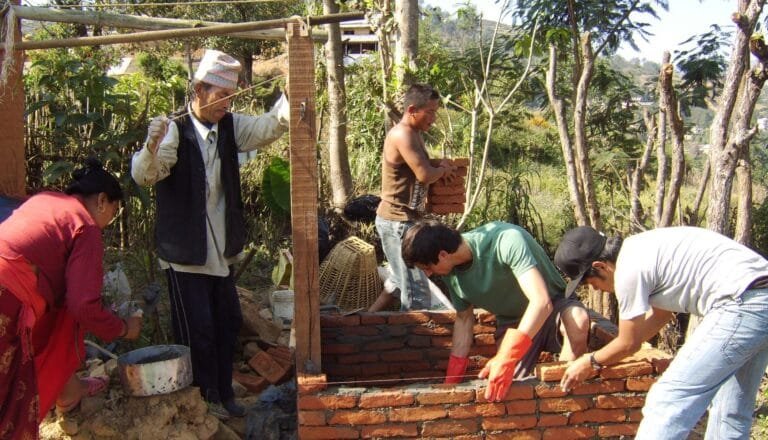Project Description
Introduction:
The HR Volunteer Program in Nepal provides an incredible opportunity for volunteers to offer their human resources expertise while supporting NGOs and local communities. Volunteers take on HR advisor roles, helping to strengthen organizational capacities, improve team dynamics, and implement key HR strategies. This role is perfect for those who want to make an impactful difference in the nonprofit sector.
Background:
Human resource management is critical to any organization, especially for NGOs operating in resource-constrained settings like Nepal. Many local organizations face recruitment, staff retention, training, and development challenges. Volunteers with HR experience can help bridge these gaps, supporting NGOs in achieving their goals more effectively.
Nepal’s nonprofit sector is growing rapidly, with numerous NGOs needing HR assistance to improve their operations. Volunteers who assist with HR management can enhance organizational performance and drive social change by empowering the workforce of these vital community-focused organizations.
Key Objectives:
- Support HR management for NGOs and local communities.
- Assist in recruitment processes, helping identify and onboard skilled staff for community projects.
- Improve employee retention through staff development programs.
- Strengthen organizational structures by improving HR policies and strategies.
- Enhance overall operational efficiency in local NGOs through human resources best practices.
Why Volunteer for HR Volunteer Program in Nepal?
The Need:
Human resource expertise is essential for the growth of NGOs in Nepal. With over 12,000 registered NGOs, many organizations struggle to manage their human resources effectively, especially small ones. Effective HR systems are key to better serving their communities. Your HR volunteering will directly impact these NGOs’ capabilities to fulfill their missions.
In Nepal, many rural communities are directly supported by NGOs, which rely on a firm, motivated team to deliver critical services. By volunteering as an HR advisor, you’ll help improve their operations and create lasting change.
Global Relevance:
This project aligns with several UN Sustainable Development Goals (SDGs), particularly SDG 8: Decent Work and Economic Growth and SDG 10: Reduced Inequalities. Volunteers contribute to more inclusive, equitable, and sustainable growth in the nonprofit sector by improving HR systems.
Local Voices:
“As a local NGO worker, managing HR issues effectively is challenging. We’re lucky to have the support of HR volunteers who bring valuable skills and insights that help us function better as an organization.” – Local NGO Manager, Okhaldhunga, Nepal.
Roles and Responsibilities of HR Volunteer
Example of 10 Core Tasks:
- Conduct HR audits to assess current practices and identify areas for improvement.
- Help create HR policies to ensure fair practices in recruitment and staff management.
- Assisted staff with training and development workshops to enhance skills and productivity.
- Organize team-building activities to improve internal communication and collaboration.
- Help with recruitment efforts, including writing job descriptions, posting ads, and interviewing candidates.
- Develop employee handbooks that align with best practices.
- Assist in performance appraisals, ensuring a fair and transparent process.
- Support employee wellbeing programs, helping staff balance work-life challenges.
- Advise on staff retention strategies, such as career development and incentives.
- Provide support in conflict resolution, ensuring healthy and productive work environments.
Daily Activities:
- Morning: Staff training or conducting HR audits.
- Afternoon: Recruitment and interview sessions or developing HR policies.
- Cultural immersion: Engage in community events and local festivals.
Special Projects:
- Develop long-term HR strategies for organizations in Nepal.
- Create a comprehensive HR manual tailored to the needs of local NGOs.
HR Volunteer Skills and Requirements
Required Skills:
- HR expertise: Proven experience in HR practices such as recruitment, performance management, and conflict resolution.
- Strong communication skills: The ability to communicate effectively with diverse people.
- Cultural sensitivity: Awareness of and respect for Nepal’s local culture and customs.
Eligibility:
- Open to individuals aged 18+ (younger participants may require guardians).
- Experience in HR management, social work, or nonprofit sectors is a plus.
Preferred Skills:
- Background in human resources management.
- Familiarity with HR software and tools.
- Experience working in nonprofit organizations.
Cultural Experience
Cultural Immersion:
As an HR volunteer in Nepal, you’ll have ample opportunities to immerse yourself in local traditions, food, and festivals. From learning how to prepare traditional Dal Bhat (Nepali meal) to participating in Dashain, Nepal’s biggest festival, the cultural experience is as enriching as your HR work.
Language Learning:
Volunteers can learn basic Nepali phrases to enhance communication and interact meaningfully with the community.
Logistics and Support
Accommodation:
Volunteers will stay in comfortable guesthouses or homestays on the outskirts of Kathmandu or Okhaldhunga, providing a perfect balance of modern amenities and local experiences.
Meals:
Traditional Nepali meals are served thrice daily to volunteers. Vegetarian options are available, and dietary preferences can be accommodated.
Transportation:
Transportation and airport pickup are included to and from the project site.
On-Site Support:
Our experienced coordinators and local staff will assist you throughout your volunteer experience, ensuring you have the guidance and resources needed to thrive.
Health and Safety:
We ensure all volunteers are well-prepared with pre-departure training, vaccinations, and travel insurance. Emergency protocols are in place for your safety and well-being.
Program Fees and Inclusions
For detailed fee information, please visit our Program Fees Page.
Impact and Outcomes
Volunteer Impact:
- Personal growth: Gain hands-on experience in HR management within a nonprofit context.
- Professional development: Enhance your resume with valuable skills in HR, nonprofit work, and intercultural communication.
- Networking: Connect with like-minded professionals, NGOs, and volunteers.
Community Impact:
- NGOs benefit from strengthened HR practices, leading to more efficient teams and better service delivery.
- Volunteers help implement sustainable HR systems, making a lasting impact on local communities.
Success Stories and Testimonials
Volunteer Experiences:
“Volunteering as an HR advisor was an eye-opening experience. I helped an NGO streamline its recruitment process and provided training to staff, making a huge difference. It felt amazing to contribute to a cause so deeply.” – Emily, HR Volunteer.
Join Us Today to Make a Difference! Ready to make an impact?
Apply now to start your journey as an HR volunteer in Nepal.
Local Impact Stories:
“Thanks to the HR volunteers, we implemented effective training for our team, which improved our operations and morale. Our community has benefited immensely.” – Local NGO Director, Okhaldhunga.
Application Process
Ready to empower others through your HR skills? Follow these steps:
- Complete the Online Application: Apply Now.
- Submit Your Resume: Attach your CV and two professional references.
- Await Confirmation: You’ll receive an email confirming your application.
- Pay the Booking Fee: Secure your spot with a €150 booking fee.
- Receive the Pre-Departure Pack: Get all the necessary materials before you leave.
- Final Payment: Complete the remaining fee upon arrival or via wire transfer.
FAQs
1. What should I pack for a Human Resource Volunteer position abroad?
When volunteering as an HR professional abroad, you should pack essentials like comfortable clothing suitable for office and casual environments, a laptop (if required), and any materials or documents necessary for your HR tasks. Don’t forget personal items, toiletries, and any specific medications. Additionally, consider packing light, climate-appropriate clothing, and a portable charger to stay connected.
2. Can I bring a friend to volunteer with me?
Most volunteer programs welcome having friends join if they meet the program’s eligibility requirements. However, it’s essential to confirm with the specific program organization beforehand, as some may have limited capacity or restrictions on the number of volunteers they can accommodate at a time.
3. What happens in case of emergencies during my volunteer experience?
The organization hosting your volunteer program typically provides 24/7 support through local coordinators or emergency contacts in case of an emergency. It’s essential to have travel insurance that covers emergencies and health issues. You will receive the necessary emergency protocols, and your program staff will guide you on acting in specific situations.
4. Do I need previous HR experience to volunteer as an HR advisor abroad?
While prior experience in HR is often beneficial, many volunteer HR positions, especially in nonprofits, are open to individuals with a keen interest in HR and a willingness to learn. Some roles may provide you with training or require essential recruitment, conflict resolution, or personnel management knowledge. It’s always a good idea to check the program’s specific requirements before applying.
5. How much time commitment is required for Human Resource volunteer roles abroad?
Volunteer HR roles typically require at least 4 weeks, although some programs may ask for a longer duration, up to 10 months, depending on the project’s scope. The time commitment can vary based on the specific HR tasks you’ll be involved in and the needs of the organization you’re volunteering with. Make sure to check the details of the program to align your availability.
6. Is speaking Nepali necessary for communication in HR volunteer roles in Nepal?
While knowledge of Nepali can be helpful, especially in rural areas, many volunteer programs in Nepal accommodate English-speaking volunteers. HR roles typically involve working closely with local staff, and some organizations offer essential language support or cultural orientation to help you communicate effectively. However, having a basic understanding of Nepali can enrich your experience and foster better relationships with the local team.
7. Are there other volunteer roles in Nepal besides HR?
There are many other volunteer opportunities in Nepal in various fields, including education, healthcare, community development, and environmental conservation. Many organizations offer roles such as teaching, project management, medical assistance, agricultural support, and HR volunteering. If you have skills in any other area, you can find a suitable volunteer position to match your expertise and interests.
Gallery







